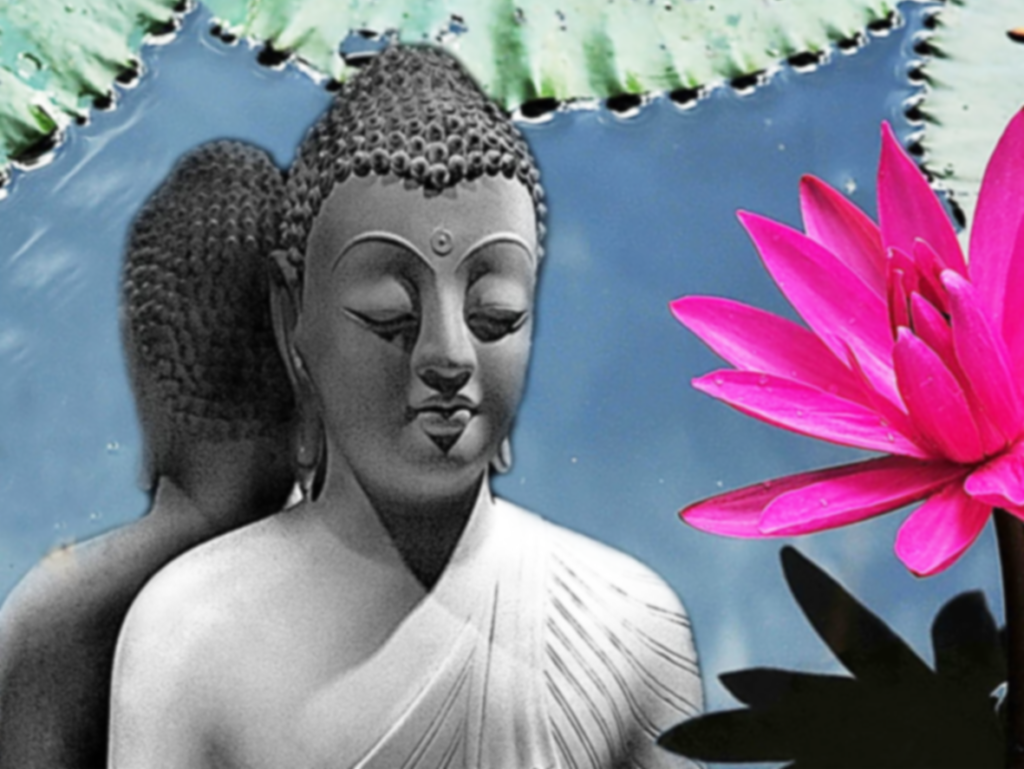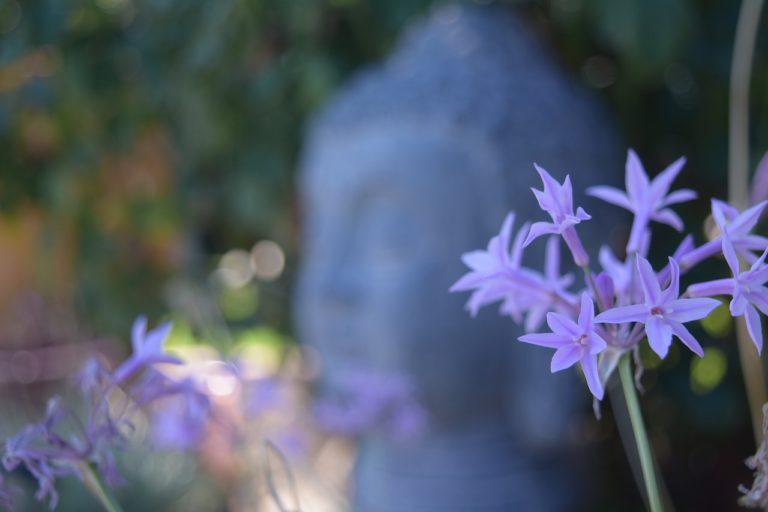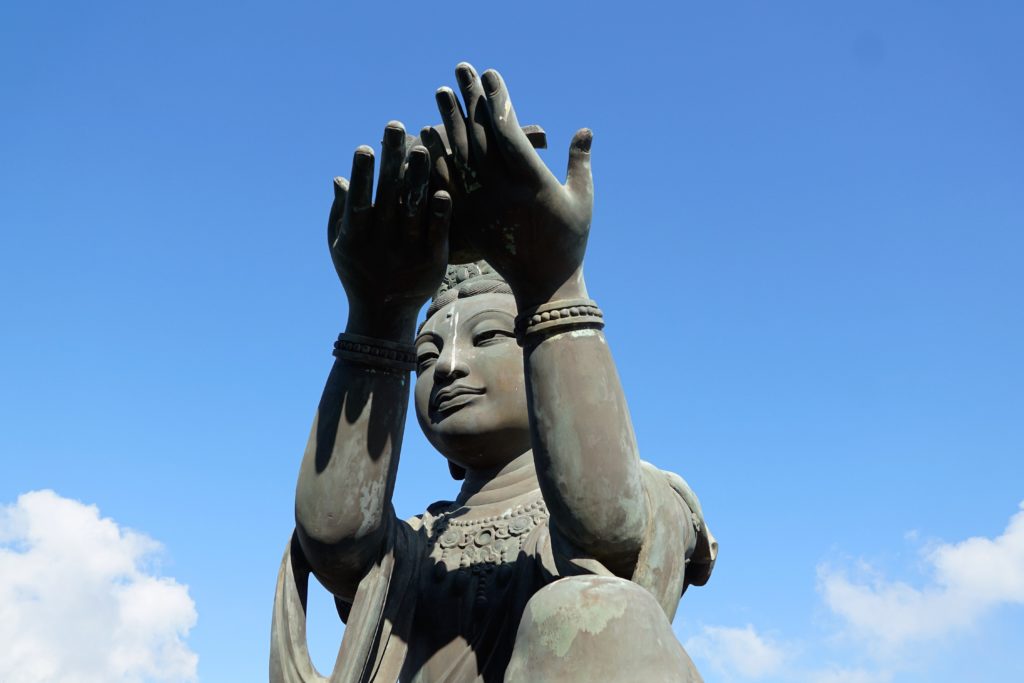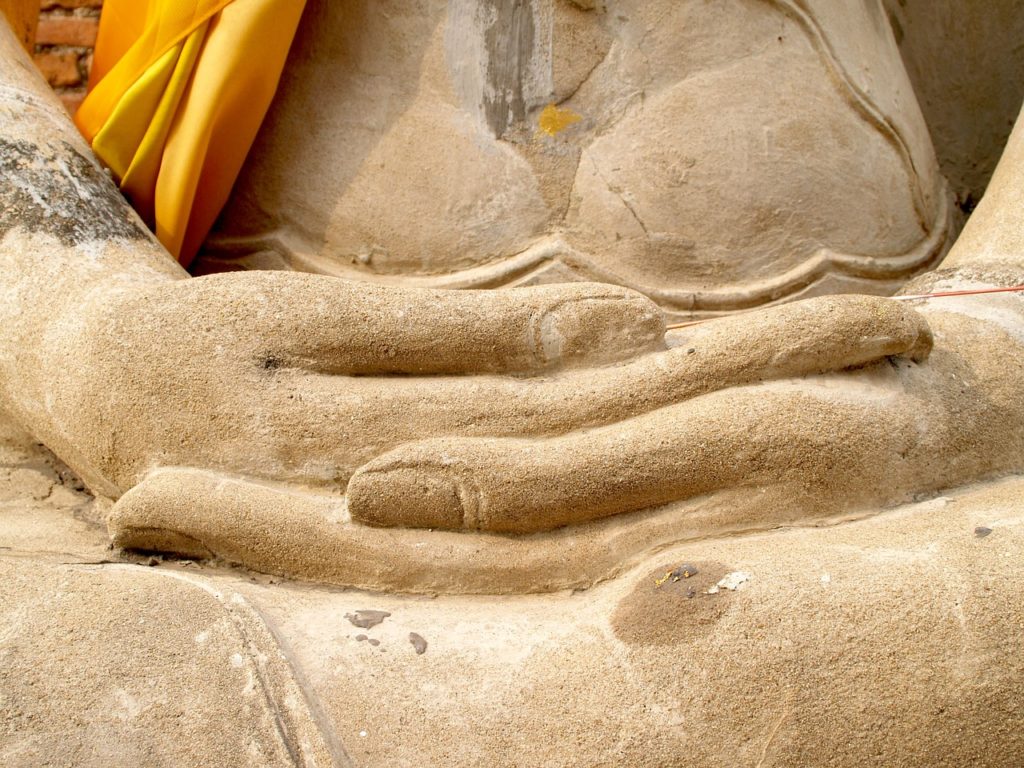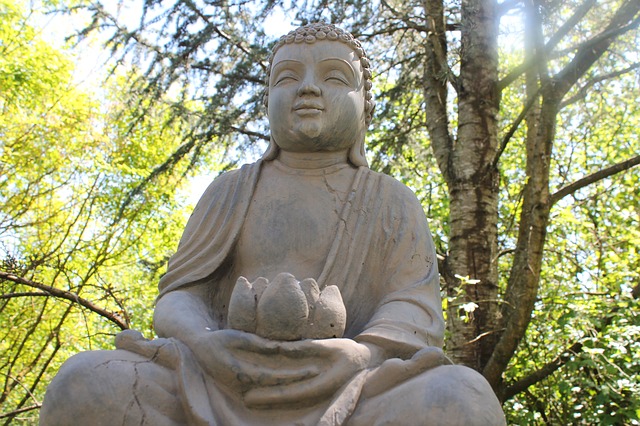
Meditation is not about sitting quietly with your eyes closed—this is just one method for developing meditative concentration. What matters in meditation is being able to contemplate and focus the mind.
Chan Master Nanyue Huairang once said, “Consider an ox pulling a cart: if the cart does not move, do you hit the cart or do you hit the ox?” Beating the cart is useless. In the same way, how you concentrate the mind is far more important than what you do with the body.
To practice meditation, one must focus on the present moment, stop delusion, and see the mind.
In China, the Chan School encouraged the development of meditative concentration through communal labor, like carrying firewood and water. This training allowed Chan practitioners to see their intrinsic nature by illuminating their minds, thus achieving the ultimate goal of meditative concentration.
The Four Bases of Mindfulness allow us to use our mindfulness so that we do not mistake impurity for purity, suffering for happiness, impermanence for permanence, and what has no independent self for something that does. They are:
1. Mindfulness of the Body
One is mindful of the body, and contemplates the impure aspects of the body. At the same time, one contemplates the compounded nature of the body, its impermanence, suffering, emptiness, and lack of selfhood. In this way, one counteracts the delusion of seeing the impure as pure.
2. Mindfulness of Feelings
One is mindful of feelings and observes how pursuing happiness can have the opposite effect of producing the causes for suffering. One also contemplates feelings’ characteristics of suffering and emptiness. In this way, one counteracts the delusion of seeing suffering as happiness.
3. Mindfulness of the Mind
One is mindful of the mind and contemplates the impermanence of the mind as the “seeker” by contemplating the arising and ceasing of thoughts. In this way, one counteracts the delusion of seeing impermanence as permanence.
4. Mindfulness of Phenomena
One is mindful of phenomena, and contemplates how all phenomena arise due to causes and conditions and have no self-nature. In this way, one counteracts the delusion of seeing what has no self as having a self.
From For All Living Beings, written by Venerable Master Hsing Yun.
Image from Pixabay.


